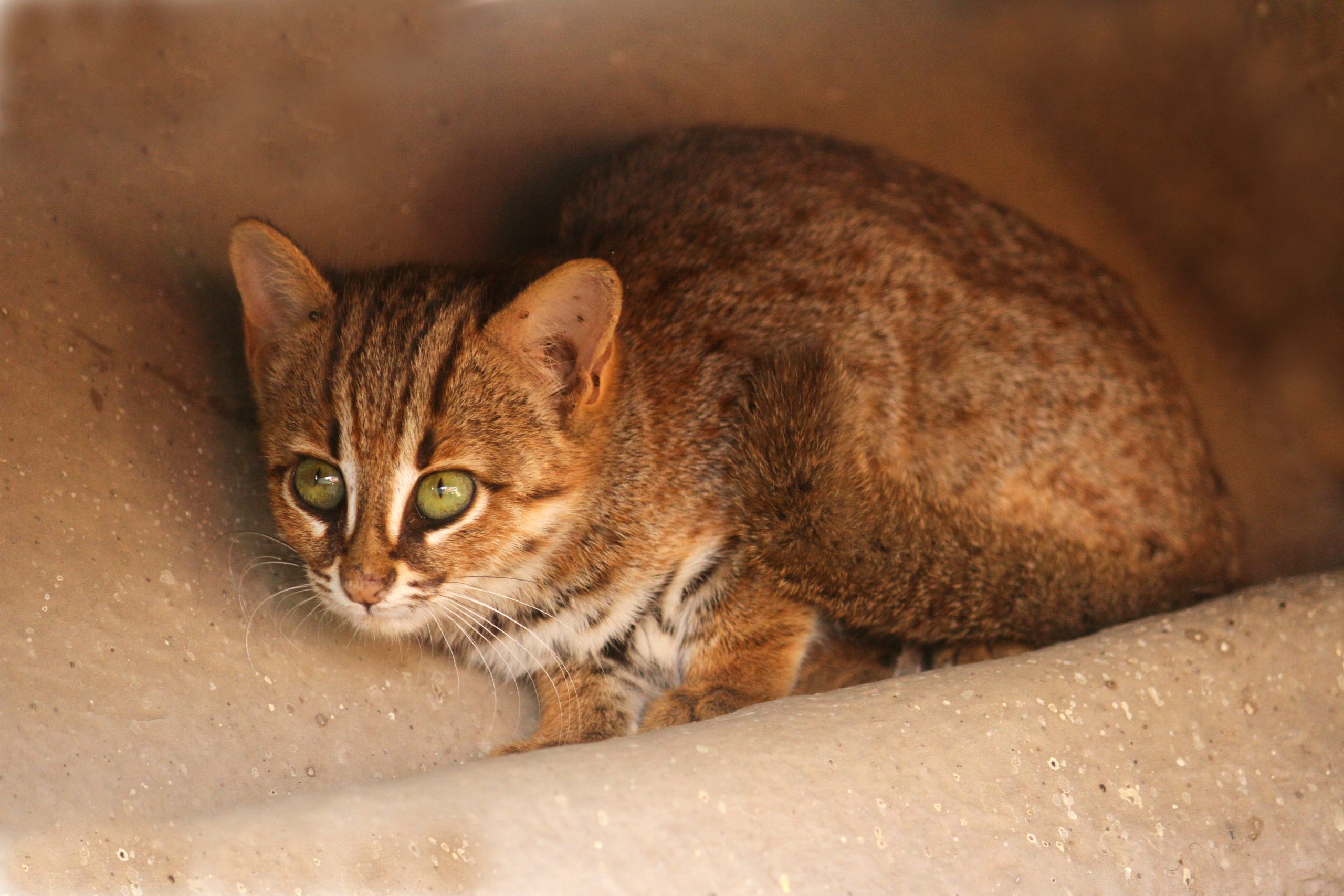Rusty-Spotted Cat
The rusty-spotted cat, the world’s smallest cat species, was recently spotted in the forests of Purulia district, West Bengal. This discovery was made by researchers from the Human and Environment Alliance League (HEAL) while investigating pangolin poaching. The sighting, captured on camera on 12 January 2025, marks the first time this elusive creature has been documented in this region.
Characteristics of the Rusty-Spotted Cat
- The rusty-spotted cat (Prionailurus rubiginosus) weighs about 900 grams and measures approximately one and a half feet in length.
- Its tail adds another foot to its overall size. This cat species is smaller than a domestic cat.
- Its unique appearance and behaviour make it difficult to spot in the wild.
- IUCN Red List: Near Threatened
Habitat and Distribution
- This species primarily inhabits dry, deciduous forests in India and Sri Lanka.
- Recent findings indicate its presence in Nepal.
- Approximately 80 percent of the global population resides in India, with habitats threatened by land conversion.
- The forests of Chhattisgarh, Odisha, and Jharkhand are known habitats, but the recent sighting in Purulia raises questions about its migratory behaviour.
Conservation Efforts
The discovery has drawn attention to the conservation efforts in West Bengal. The Divisional Forest Officer, Anjan Guha, brought into light the positive impact of government initiatives in improving forest quality. Despite the success, the rusty-spotted cat faces threats from hunting and habitat destruction. Local communities frequently enter these forests, leading to potential conflicts with wildlife.
Ecological Significance
The forests of Purulia provide a suitable environment for the rusty-spotted cat. The interconnectivity of forests in the Chota Nagpur Plateau may facilitate migration. The presence of apex predators like leopards indicates a balanced ecosystem. Conservationists believe that the thriving wildlife population is a result of increased surveillance and reduced human disturbances since the Covid-19 pandemic.
Community Involvement
HEAL has initiated a livestock support programme to mitigate human-wildlife conflict. This programme aims to replace livestock lost to carnivores, thereby encouraging coexistence between villagers and wildlife. The goal is to change perceptions of wildlife from adversaries to allies, promoting a harmonious ecosystem.
Month: Current Affairs - February, 2025
Category: Environment Current Affairs







